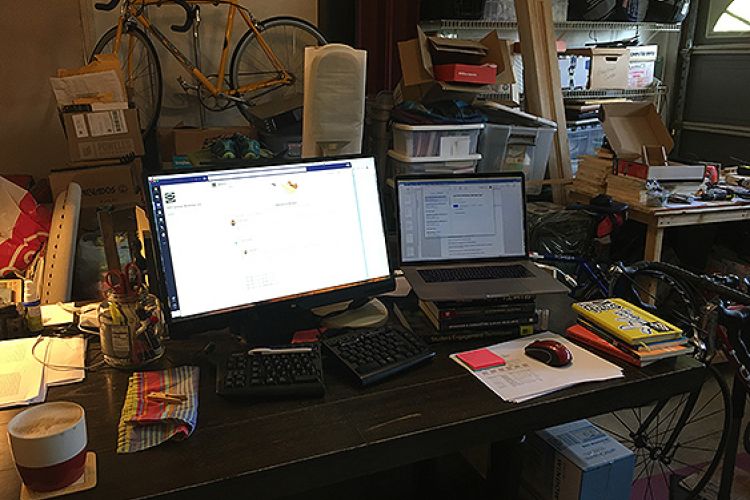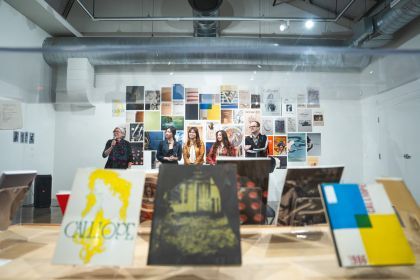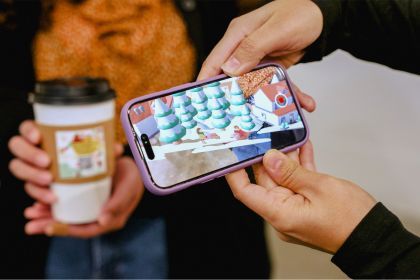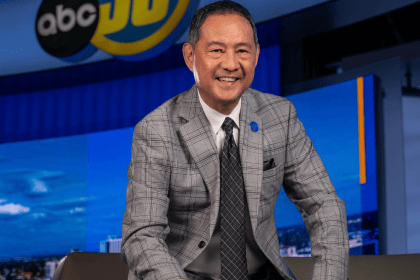Breadcrumb
Political science professor tailors courses to keep students together even when they’re apart

Political science professor Keith Smith has set up an office in his garage at home.
“I think the main thing is you've got to be intentional about being in class when you're in class,”
This fall, political science Professor Keith Smith will not teach his courses from his classroom in the Stockton Campus’s Wendell Phillips Center. Instead, he will be in the makeshift office he carved out of his garage at home. He believes your environment matters when it comes to remote learning, and a dedicated space for teaching helps him block out distractions while he’s in class.
“I think the main thing is you've got to be intentional about being in class when you're in class,” he said.
Conquering physical space is just one of myriad challenges in making remote education as meaningful as it is in-person. Smith says it begins with creating community.
Students develop relationships naturally when they see each other on campus, and those relationships help students support each other when risks are being taken and challenges are being confronted in class. But in this new, remote-learning environment, Smith realized he needs to help direct that process.
“This fall, I'm hopeful we'll be a lot closer to the experience that someone would have had in my class if we were in the room together,” he said.
The big difference between Smith’s classes this fall and the ones he had to adapt last spring is that courses will be taught synchronously. Because Smith and his students will be in class at the same time, discussions will happen in real-time, and they will take advantage of breakout rooms in Zoom for small-group collaboration. Students can expect some exercises in expectation-setting, building camaraderie and creating rituals for class to help them get to know one another.
Smith learned those skills and techniques at Pacific’s Center for Teaching and Learning over the past decade. “I'm one of the people that have essentially lived at the CTL since I've been at Pacific.”
Smith’s philosophy emphasizes interacting with other students and the material instead of the read-a-book, take-a-test model that many online courses rely on.
“In order to truly learn something, you have to be able to talk about it; you have to be able to write about it; you have to reflect on it,” he said. “You have to come back to the idea multiple times so that you can see the different pieces, and we do that in our seminars.”
In his Pacific Seminar I courses, Smith will use a tool called Flipgrid, which allows his Reacting to the Past students to record speeches that classmates can watch outside of class. That frees more time for class discussion.
They will also use collaborative documents in breakout rooms on Zoom as well as other digital tools. But for Smith, it’s the interaction that matters.
“The challenge is to use the tools that are out there without having the tools be the point,” he said.





